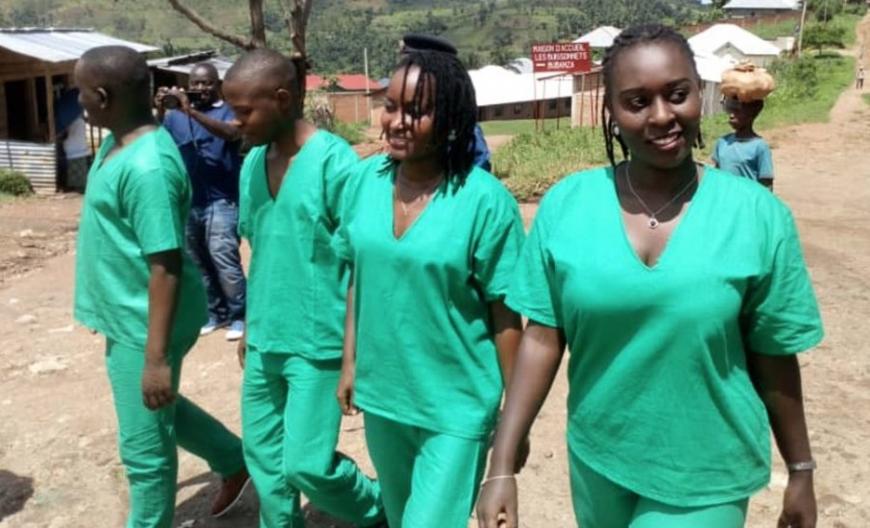By Waceke Njoroge
The media in Burundi is deemed to be one of the biggest beneficiaries of the limited reforms that President Évariste Ndayishimiye has instituted since he took office slightly more than a year ago.
Yet even this achievement is qualified, with the Commission of Inquiry on Burundi terming the efforts to ease restrictions on the media as “…more symbolic than structural…” and, therefore, insufficient to guarantee freedom of information and expression.
The commission’s latest report cites the case of the journalists of the Iwacu press group, who had been convicted of “a failed attempt of complicity in undermining the internal security of the State” simply for doing their job. The president pardoned them and even asked the National Media Council to make it possible for suspended media outlets to resume their operations. However, although the comments section of the Iwacu website was allowed to reopen on February 12, 2021, direct access to the website from within Burundi is still not possible.
Bonesha radio also enjoyed a similar stroke of fortune when the sanctions against it were lifted on February 19 after its new management committed to preventing all “professional misconduct”. Four of its media outlets, including Isanganiro television, were allowed to resume broadcasting two months later. However, BBC radio and Voice of America, which had been suspended since 2019, did not enjoy the same advantage. Only the British broadcaster benefited from the government’s concessions, being allowed to reapply for a licence.
The government’s tolerance of journalists perceived to be critical of its actions has not improved. “Journalists, including their movements, are closely surveilled by the National Media Council, which stands ready to punish any ‘deviation’ and has no qualms about holding directors of media outlets accountable. Journalists are forced to self-censor,” said the commission.
The fate of seven Burundian journalists living in exile who were convicted in absentia of undermining State authority, murder, and damage to property, and sentenced to life imprisonment in connection with the attempted coup d’état of May 13, 2015 serves as a serious enough deterrent to freedom of expression. The journalists were among 34 alleged coup instigators who included human rights defenders, lawyers, opposition critics, and military personnel in special criminal case No. 100, referred to as the RPS 100 case, whose assets, were seized and sold in November 2020.
“The official media do not think critically and refuse to call into question government actions or to report on sensitive incidents such as the bodies that are regularly found in public areas and cases of rights violations,” the report said.
The government seemed intent on further tightening its control of the media, announcing that the 2018 Press Act would be amended to regulate online media and community radio stations and to prevent “content that is contrary to Burundian culture” from circulating on social media.
The report paints the same picture for civil society organisations (CSOs), with the government appearing to give with one hand while at the same time taking away with the other. It cites the case of Parole et Actions pour le Réveil des Consciences et l’Évolution des Mentalités, which on April 2, 2021, was allowed to resume its activities after being suspended in June 2019 for “tarnishing the country’s image” by publishing a report critical of the socioeconomic situation in Burundi. This was followed shortly afterwards by a presidential pardon that led to the release of human rights defender Nestor Nibitanga. His colleague, Germain Rukuki, was freed after his second trial on appeal.
As if to counter these apparent gains, the government took measures to strengthen its control over the activities and functioning of civil society organisations. The Burundian authorities have gone as far as trying to dictate how and the field in which the organistions should operate.
The report cites the example of the authorities limiting CSOs’ operating expenditure in projects funded by technical and financial partners by aligning salaries with those in public entities in Burundi.
“In February 2021, the government warned foreign non-governmental organisations active in Bubanza Province that they would be subject to inspections to check, inter alia, what they had delivered, the ethnic composition of their staff, the salary and benefits of their expatriate staff, and the extent to which the recruitment committees introduced by the government were involved in their hiring procedures,” the report said.
The commission, established by the United Nations Human Rights Council to investigate human rights violations and abuses committed in Burundi since April 2015, presented the report to the council during its latest session, which ends this week in Geneva, Switzerland.







